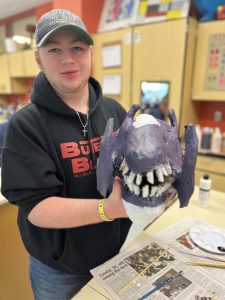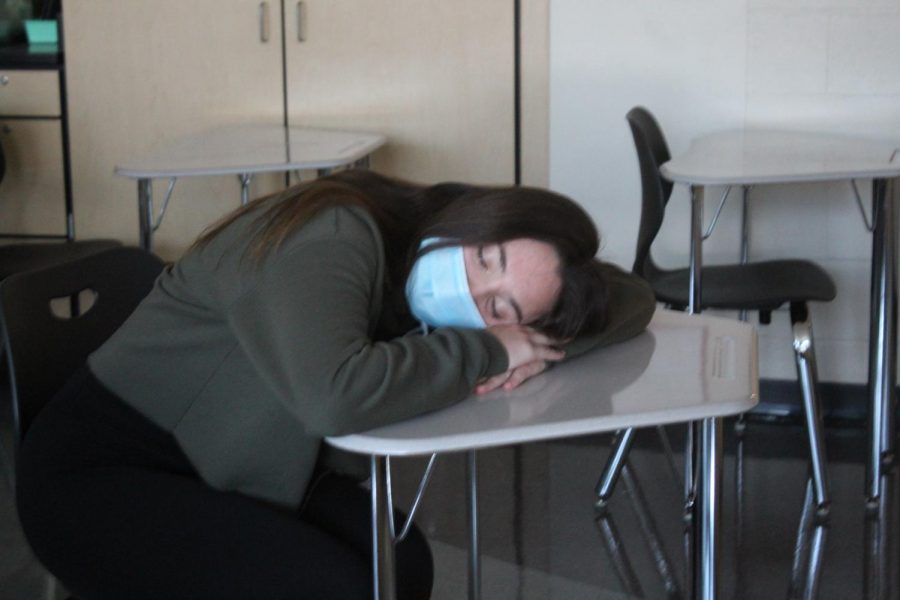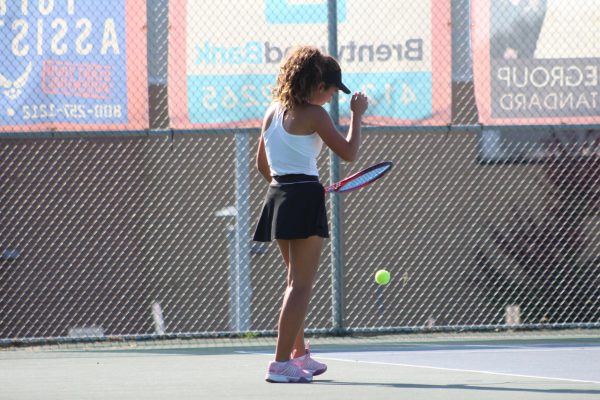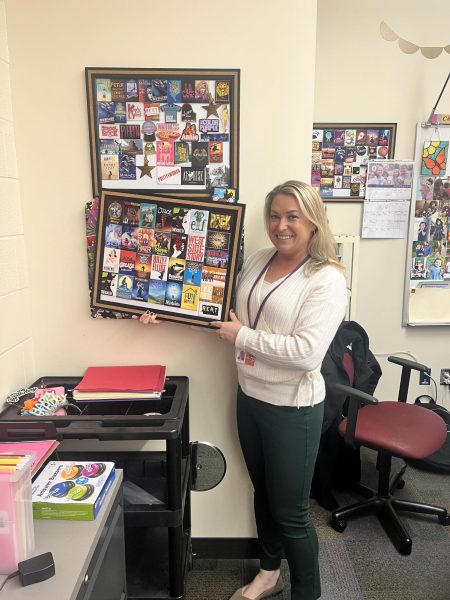The case for senioritis
Senior Grace Rubican exhibits a case of senioritis during the school day.
Ah, yes, the infamous affliction plaguing most high school students in their senior year.
Typically being treated as a sort of tongue-in-cheek colloquialism, “senioritis” has become a very real thing, especially during the time of a global pandemic.
Stress levels are at an all-time high during the fall and winter months of one’s senior year as each person scrambles to submit college essays and scholarship applications. After those submissions is when the mid-year malaise hits.
Typical signs of senioritis include laziness, lack of motivation, a dismissive attitude, and mediocre grades or studying. A solution other than graduating remains to be seen.
This past year has been particularly hard on the Class of 2020 and Class of 2021. Taking school from home has proven to be much more difficult than many people had originally thought. Students find themselves itching to turn their cameras off and fall asleep during class or mindlessly scrolling on their phones. When you´re already rapidly losing motivation, the increased lack of stimulus can make simple tasks like taking lecture notes feel nearly impossible.
Most teachers understand this increased level of laziness and boredom, but others prefer to ignore its entire existence. Senior year workloads can feel suffocating, especially if you’re taking several AP and Honors classes.
But, how can students beat this sickness?
One way to counteract senioritis is to set goals for yourself. If you can see an outcome you wish to work for, you’re much more likely to stick with it and keep yourself engaged.
Another way to fight senioritis is to “accept the fact that becoming a senior is not the end of the line, but the continuation of the pathway forward,” as band director Mr. Chad Thompson puts it.
In his eyes, wading in senioritis is futile. School systems nowadays feed into this conveyor belt of external stimuli to push students to make an effort. This method effectively eliminates any sense of internalized motivation when all students can focus on is getting that gold star or bright red A on their report card.
Thompson then goes on to explain that you never stop learning at any point in your life. You may feel as if you’ve reached the end of the line, you’ve reached senior status. What more could you possibly need to achieve.
Mr. Thompson implores students to recognize that though you may be a senior now, next year you’ll be a freshman and you’ll be tasked with even more.
“You’re never done being sculpted until you leave this earth” are his parting words. You’re only hindering your ability to learn and become more when you settle into the mindset that you no longer need to make an effort since you’ve gotten into college or your preferred post-secondary education.
Going into this article, I hadn’t taken senioritis very seriously. Many students hit a season of laziness and reduced motivation around this time, regardless of grade level. While researching senioritis, I came across many satirical articles discussing the “sickness,” but I had never really understood it until now.
Moreover, Mr. Thompson raises an important point. Though we may feel that putting effort into our senior year education is pointless, we must recognize that being curious and wanting to learn more is something we must want to do for ourselves and that we must do it every single time.
Check out Hawk Eye’s Instagram account @bphawkeye to see what Bethel Park´s senior students have to say about senioritis!





















